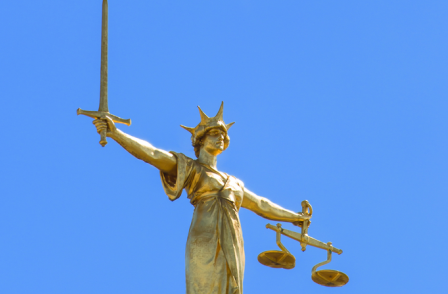
The first journalist to be found guilty of paying a public official in the wake of the high-profile Operation Elveden probe has had the conviction quashed on appeal, it can now be reported.
The news means that of 18 journalists to face trial charged with misconduct in a public office offences over payments, there has been only one guilty verdict (and it can now be reported that is being appealed). There have been nine not-guilty verdicts, seven cases were the jury could not reach a verdict and one conviction has been quashed.
The former News of the World reporter was handed a six-month suspended sentence after being found guilty at the Old Bailey last November.
In turn, the officer was jailed for three-and-a-half years for misconduct in a public office while his friend was given 30 weeks behind bars.
All three, who cannot be named for legal reasons, launched an appeal, and on Thursday the Lord Chief Justice ruled that their convictions should be quashed.
He found the trial judge Charles Wide had "misdirected" the jury on a key aspect of the ancient common law offence of misconduct in a public office in relation to the "level of seriousness" required.
Under the offence, which can be traced back to the 13th century, the misconduct had to be "to such a degree as to amount to an abuse of the public's trust in the office holder".
The appellants had asked the judge to tell the jury that the test for criminal misconduct was "high" and appealed on the grounds that it should have been made clear.
Although two other issues were dismissed, the judgment found there was "an irregularity" in the way Judge Wide dealt with juror notes which exposed the "horrible atmosphere" in which they were working.
At the end of two days spent deliberating, Judge Wide received a note from one juror which read: "The discussions within the jury room have become aggressive and the atmosphere is horrible.
"I went to speak and two other jurors rolled their eyes and stated 'again'. Another juror told them to stop being rude and voices were raised.
"Additionally a particular juror keeps insisting we go with a majority vote, despite being told otherwise repeatedly by several jurors and our foreman.
"One juror even got out a magazine and proceeded to read this whilst others were stating their points.
"Please be aware all of the above is only the activity of two jurors however I strongly feel it is affecting the ability of us all to voice our opinions without fear of reprisal from them."
The next morning the judge told lawyers about the note but said he did not propose showing it to them.
Instead, he directed the jury that "discussion is not of course the same as argument" and reminded them that as a jury of 12 the "collective collaborative nature of your decision making is important".
He also told them that verdicts must be "unanimous" until given further directions.
Immediately afterwards he received a note from another juror saying: "I am being that. I am wasting oxygen!"
According to the judgment, both notes should have been disclosed at the time as they "showed that one juror was very concerned as to the way in which the deliberations were being conducted".
But while that amounted to an "irregularity", it had no bearing on the safety of the conviction.
In a separate case, the Lord Chief Justice also gave ex-NoW reporter Ryan Sabey – the second journalist to be convicted following an Elveden trial – leave to appeal against his conviction.
Sabey, 34, of Bethnal Green, east London, was found guilty of aiding and abetting lance corporal Paul Brunt to commit misconduct in a public office.
The court heard Brunt, 32, of Kentish Town, north London, was paid more than £16,000 to provide information and pictures about Prince Harry to the Sun and the NotW over an 18-month period in 2006 and 2007.
Explaining the decision to quash the other convictions, the judgment concluded: "Each appellant contended on the first issue in the appeal that the judge had misdirected the jury on the third element of the offence, namely the requisite level of seriousness.
"We have set out our conclusion that there was a misdirection and considered very carefully whether it affected the safety of the conviction; the considerations were finely balanced given the great care the judge took and overall approach taken by the judge and the parties in the case to the public interest.
"We have nonetheless concluded that in all circumstances we cannot say that the jury would necessarily have convicted these appellants had they been directed in accordance with what we have set out. We must therefore quash the convictions."
Lord Thomas gave the Crown until next Tuesday afternoon to decide whether to seek a re-trial in the first case.
A CPS spokesperson said afterwards: "The judgment does not call into question the prosecution of the cases they considered but acknowledged this is an extremely difficult, and rarely visited, area of the law.
"The Court of Appeal considered that the jury needed greater direction on how serious offending must be to amount to an abuse of the public's trust than was given in this case and therefore could not be certain that the jury would have reached the same verdict if that direction had been given.
"As with all Court of Appeal rulings, the CPS will now consider the contents, and its implications, very carefully. No decision on possible retrials has been made. "
Email pged@pressgazette.co.uk to point out mistakes, provide story tips or send in a letter for publication on our "Letters Page" blog
